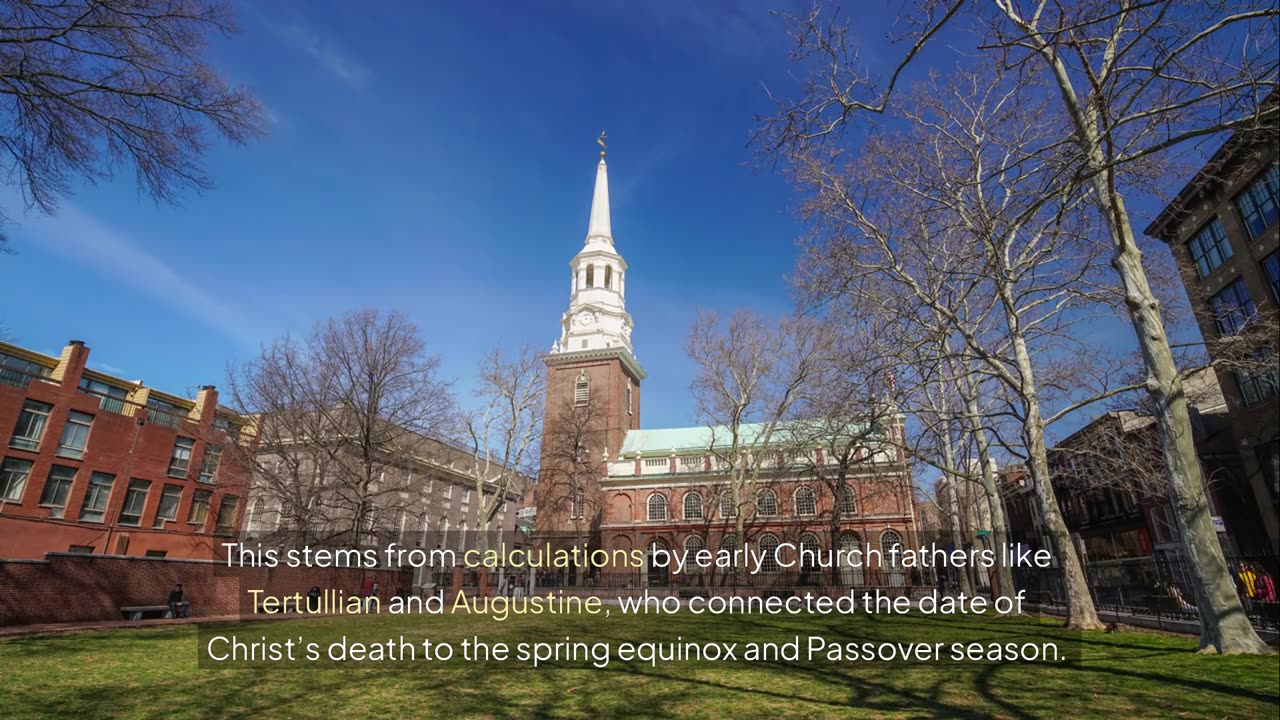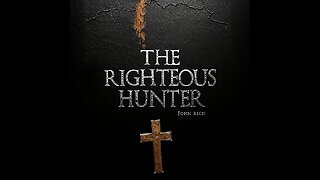Premium Only Content

March 25th in Christ
The Annunciation of the Lord (Feast Day):
March 25th is traditionally celebrated as the Feast of the Annunciation in many Christian traditions, particularly in Western Christianity (Roman Catholic, Anglican, and some Protestant denominations). This date commemorates the announcement by the Archangel Gabriel to the Virgin Mary that she would conceive Jesus Christ, as recounted in Luke 1:26-38. The date is set exactly nine months before December 25th, the traditional date of Christmas, symbolizing the Incarnation. Early Christians, including figures like Tertullian and Hippolytus (around the 2nd-3rd centuries), linked March 25th not only to the Annunciation but also to Christ’s conception, reflecting its deep theological significance.
Traditional Date of the Crucifixion:
In some early Christian traditions, March 25th was believed to be the historical date of Jesus Christ's crucifixion. This stems from calculations by early Church fathers like Tertullian and Augustine, who connected the date of Christ’s death to the spring equinox and Passover season. While modern scholarship debates the exact year and date (often placing it between 30-33 AD), the association of March 25th with the Crucifixion persisted in medieval Christian thought, sometimes overlapping with the Annunciation as a profound theological symmetry—Christ’s conception and death occurring on the same calendar day.
1306 - Robert the Bruce Becomes King of Scotland:
While primarily a political event, Robert the Bruce’s coronation on March 25, 1306, has Christian significance due to its later impact on Scottish Christianity. His reign helped shape a Scotland that, centuries later, embraced the Protestant Reformation under John Knox, establishing a distinct Christian identity rooted in Presbyterianism.
1634 - Founding of Maryland (Catholic Influence):
On March 25, 1634, English settlers, including Catholics led by Lord Baltimore, celebrated the first Mass in the Maryland colony, named in honor of the Virgin Mary (linked to the Annunciation). This event marks an early establishment of religious tolerance in the American colonies, as Maryland became a haven for Catholics amid a predominantly Protestant English colonial landscape. The date’s alignment with the Annunciation was intentional, reflecting its Christian significance.
-
 1:01:18
1:01:18
DeVory Darkins
2 hours agoBREAKING: Trump issues fatal update to National Guard shooting
85.1K42 -
 49:57
49:57
The Quartering
1 hour agoTrump UNLOADS, Walmart Black Friday Madness & Trans Taco Bell Attack
8.02K10 -
 39:51
39:51
Tucker Carlson
1 hour agoGeorge Galloway Speaks Out on Being Forced Into Exile After Criticizing Ukraine War
15.6K49 -
 21:23
21:23
Neil McCoy-Ward
30 minutes ago🔥 While You're Working Hard... They're Planning To Take EVERYTHING From You!!!
19 -
 2:13:37
2:13:37
Side Scrollers Podcast
4 hours agoTwitch CONTROVERSY Hit New Low + Reddit Mods QUIT + FireMAN is Now Sexist + More | Side Scrollers
59.3K5 -
 10:18
10:18
Colion Noir
2 hours agoViral TikTok Proves Gun Owners Wrong?
12.7K18 -
 5:31
5:31
John Rich Official
13 days agoThe Righteous Hunter by John Rich
16.9K7 -
 59:51
59:51
Rebel News
2 hours agoEby threatens to block pipeline, Guilbeault out of cabinet, Land disputes continue | Rebel Roundup
15.1K2 -
 1:45:59
1:45:59
Robert Gouveia
4 hours agoAmerican Soldier DEAD! Trump Furious! Afghan 'Vetted by CIA'! Third World FREEZE!
41.7K29 -
 48:48
48:48
The Culture War with Tim Pool
3 hours agoThe West Is COLLAPSING Under Mass Migration | The Culture War's Across The Pond
28.9K47